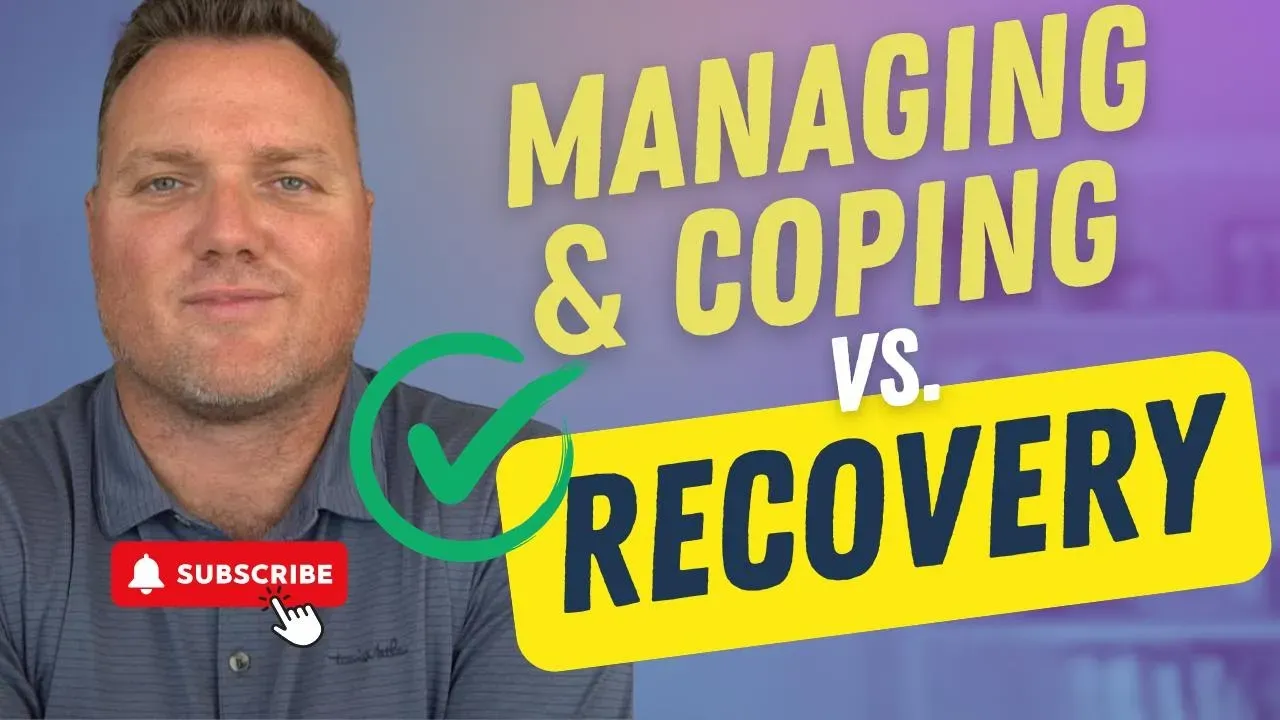Managing & Coping vs. Recovery | Breaking Free from OCD, Anxiety & Stress
Sep 24, 2025
Coping and Managing: What Do They Really Mean?
Often, people dealing with life’s challenges adopt coping or managing strategies to handle their symptoms. These approaches offer short-term relief, using tools, techniques, or even substances just to get through the day. Whether it’s meditation, therapy, distraction techniques, or medication, many end up focused on getting rid of uncomfortable feelings rather than addressing the root issue.
Matt Codde points out that while coping and managing have their place—especially in moments of acute distress—they should not be mistaken for recovery. “Managing and coping is... you still view the symptomologies as something that you don't have the capacity for,” says Matt.
The Trap of Using Recovery Tools as Coping Mechanisms
It’s common to use methods designed for recovery, such as meditation or therapy, purely as a way to escape discomfort. For example, someone might meditate just to avoid negative emotions or use exposure therapy to try to “make thoughts and feelings go away.” Matt warns that this is simply masking the problem, not truly addressing it.
“Someone will even do therapy... just to express and vent, never actually making any changes. And they'll do it as a coping strategy,” Matt explains. If your intention is only to manage symptoms, these tools lose their transformative power.
What Is True Recovery?
Recovery goes far beyond symptom management. Recovery is about becoming someone who can experience difficult emotions and transcend them. This means developing the capacity to feel, confront, and ultimately move beyond emotional and psychological struggles.
Matt Codde highlights that, “Recovery is when you use the frameworks, the resources, the support, the guidance, and you work with people to become someone who can transcend these experiences.” In other words, recovery is about personal evolution—growing your capacity to such a degree that these experiences are no longer seen as disorders but as normal human challenges.
Why Intention Matters
A key factor that Matt stresses is intentionality. Are you using a tool to truly face and work through your struggles, or are you using it to avoid them? Your results will depend on your underlying intentions. “Part of it is your own intentionality of what you’re doing and what your goals are,” Matt notes.
He encourages everyone to honestly evaluate their current strategies: “We can’t call coping and managing recovery and think that we’re talking about the same thing because they’re two totally different objectives.”
Moving Forward: Embrace True Recovery
If you find yourself stuck in a cycle of coping and managing, know that genuine recovery is possible. Even if all you can do today is cope, recognize that a bigger transformation is within reach when you’re ready.
As Matt Codde concludes, set your intention to recover and grow beyond your current struggles: “You can begin shifting and working towards what you really want to be doing.”


